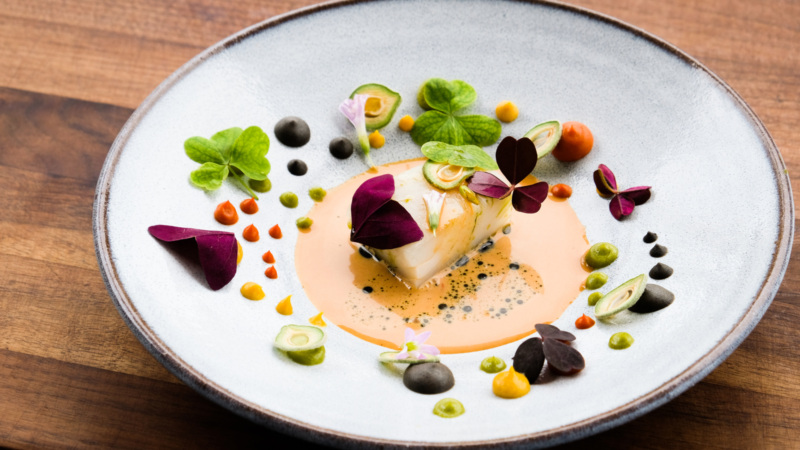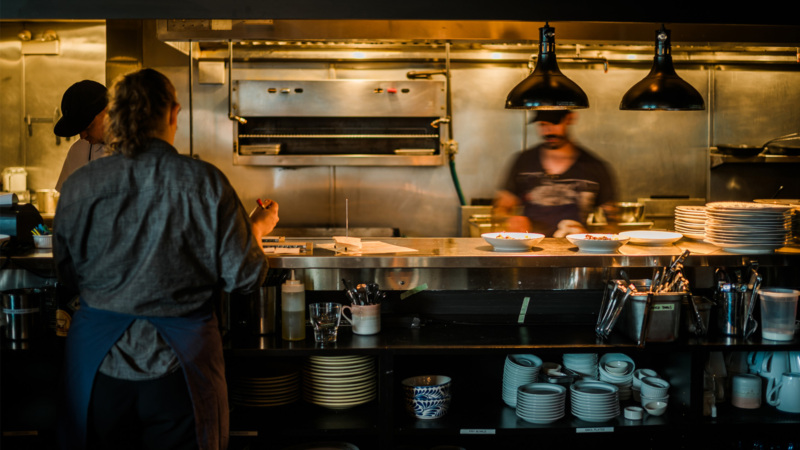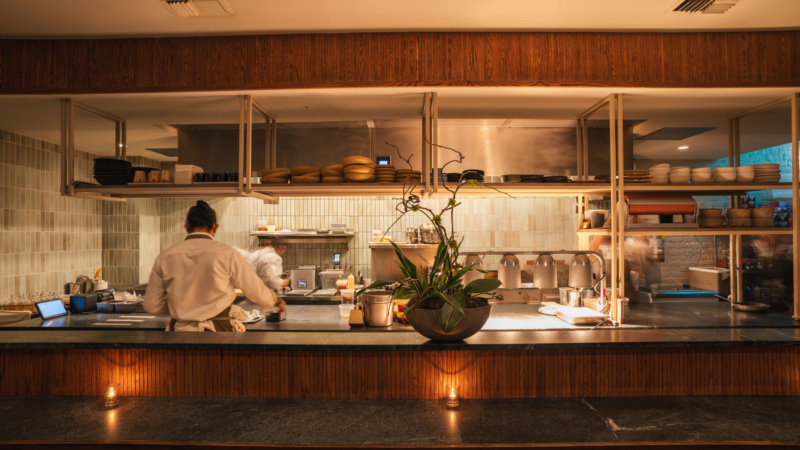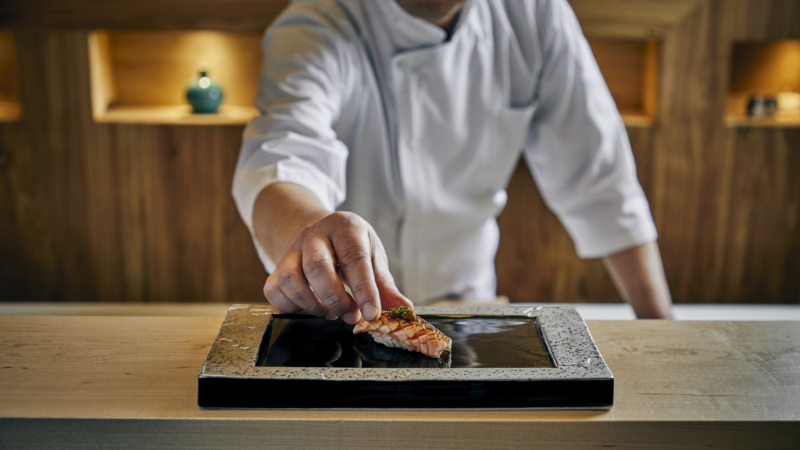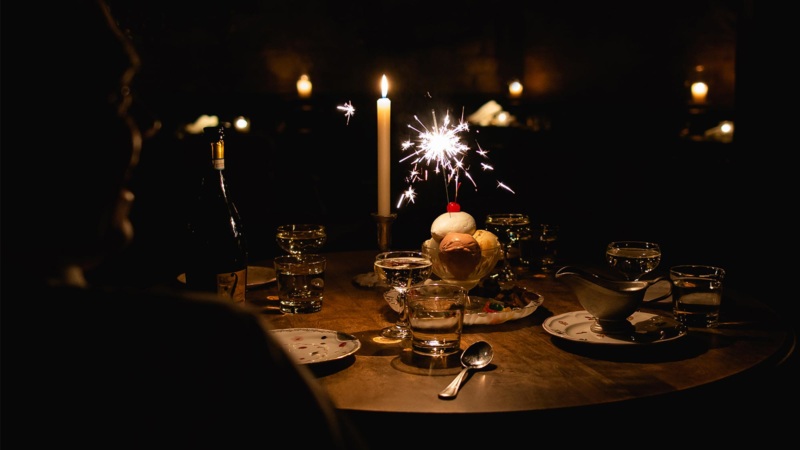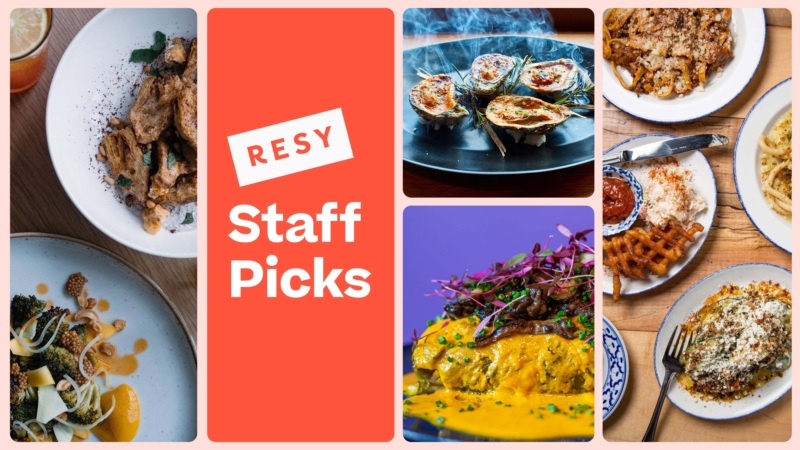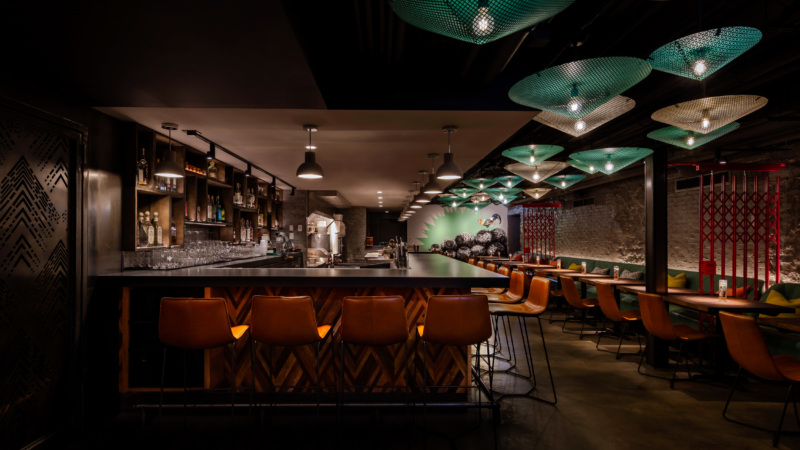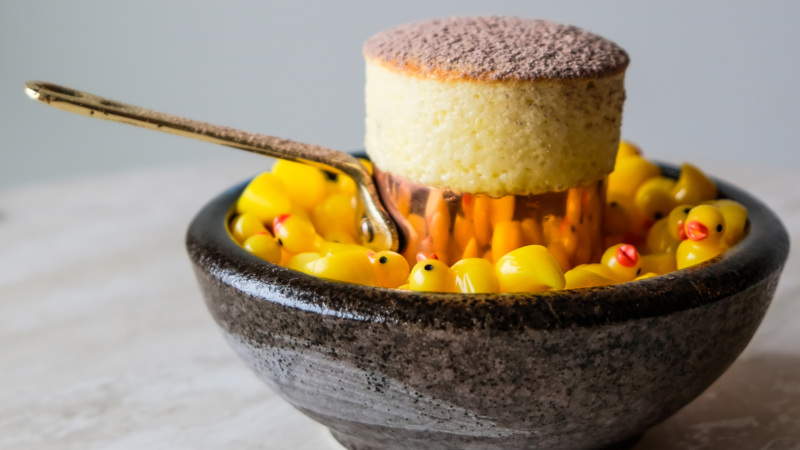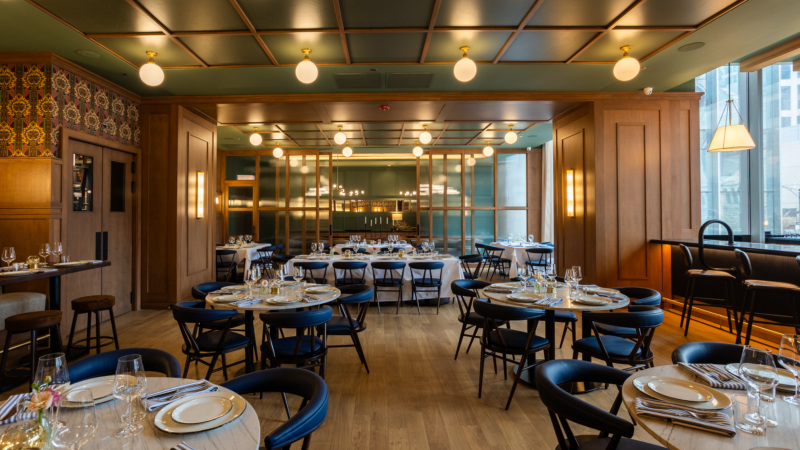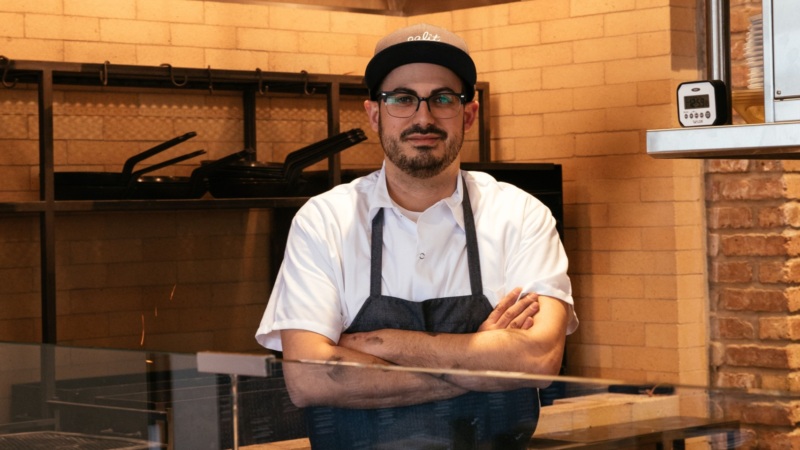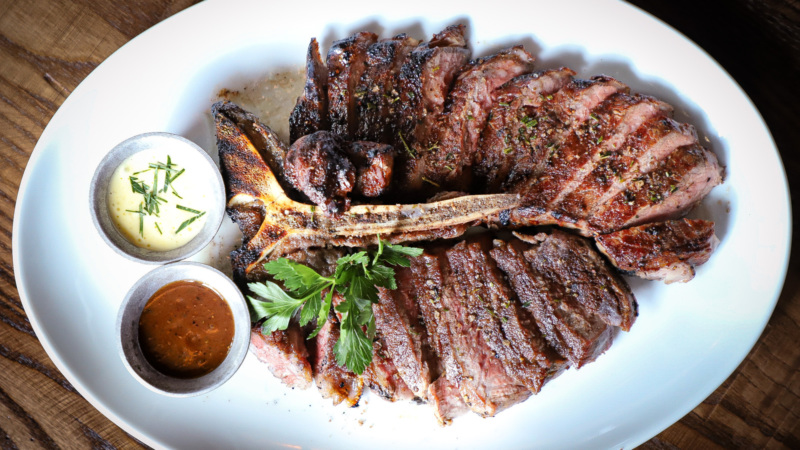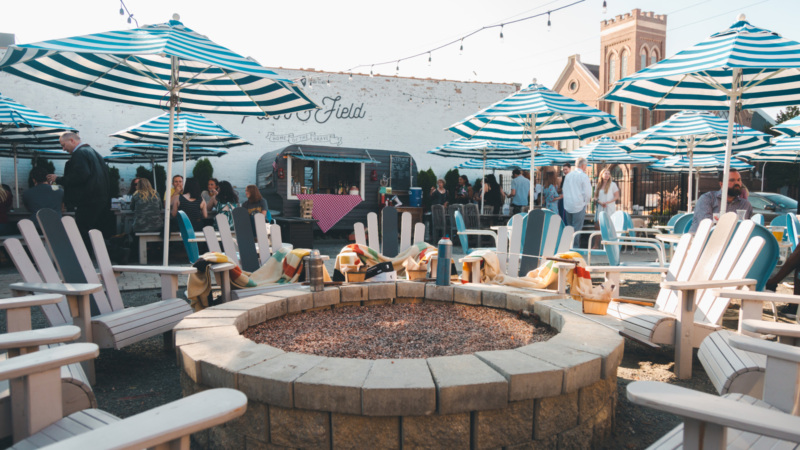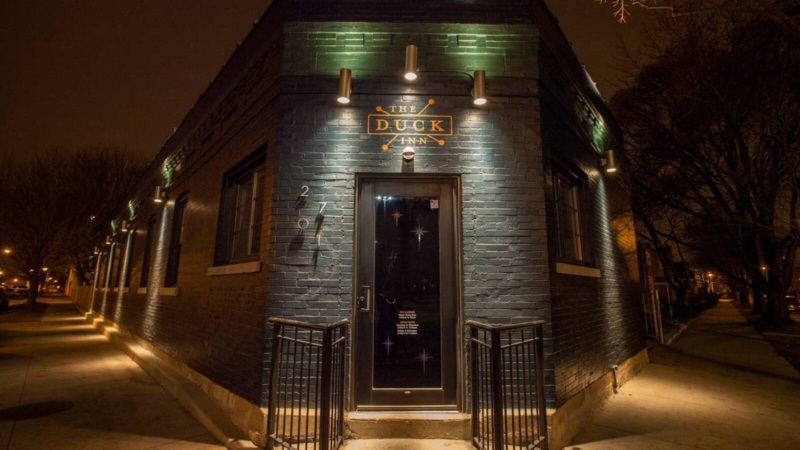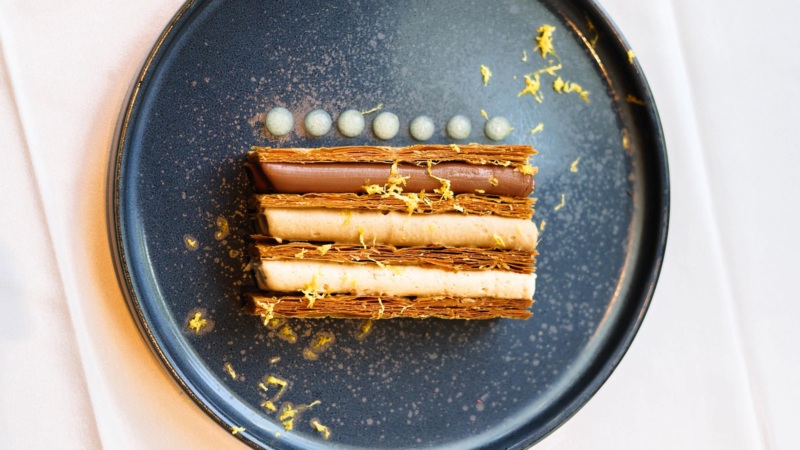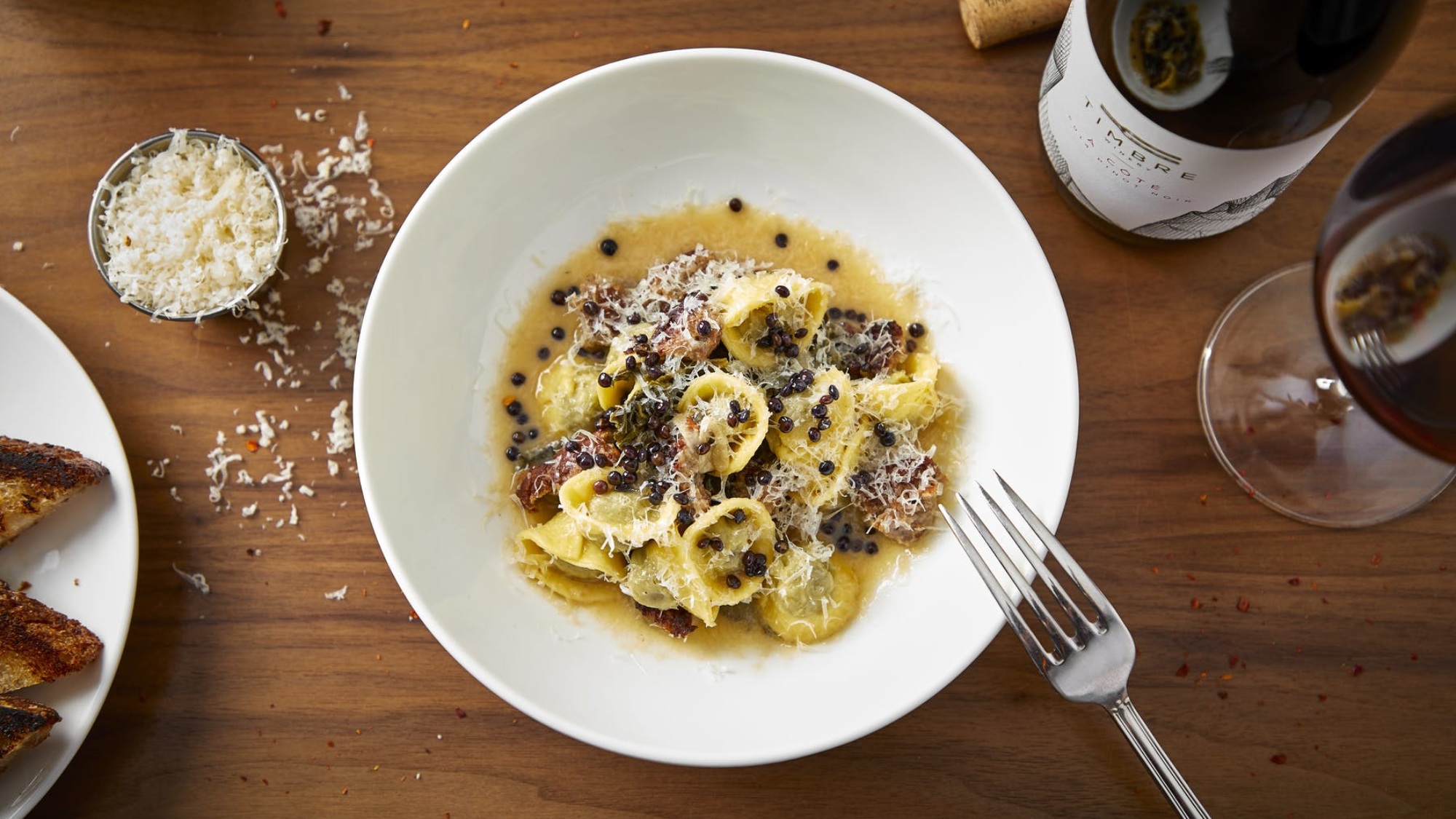
At Daisies, Chef Joe Frillman Shows Respect for His Roots
Imagine if the Midwest were a region in Italy: that’s the inspiration behind Daisies, a seasonal pasta restaurant in Logan Square. The chef-owner, Joe Frillman, is a Chicago boy at heart; he grew up in the northern suburb of Prairie View and honed his chops in lauded Italian kitchens across the city. Frillman’s first mentor was Chris Pandel, a chef who helped him hone his craft of pasta-making at the late Osteria di Tramonto and The Bristol. Later, Frillman worked for Paul Virant (a notable expert in pickling and fermentation) at Perennial Virant, where Frillman developed an appreciation for local, micro-seasonal cooking. Daisies “is kind of a mashup of those two guys’ styles” Frillman says. And yet, in many ways, the most prominent driving force behind Daisies is family.
The restaurant is named for Frillman’s grandmother, Daisy. He and his wife, Jenna, met while working in the restaurant industry, and they both come from restaurant families. Frillman’s great-grandmother owned two bars in Chicago (Pauline’s Inn and Spring Mill Inn). Her daughter, Daisy, “was the person who made sure that food was the focal point of getting everybody together,” Frillman says. Daisy’s influence led Frillman to becoming a chef, his cousin to opening a restaurant (Nickson’s in La Grange); and many of his other cousins to pursuing careers in food. So it was no surprise when Frillman’s brother Tim decided to ditch his corporate job to become a farmer back in 2012. From the beginning, Frillman Farms’ main purpose has been to supply peak-season ingredients to Daisies and other restaurants.
Thus, the menu at Daisies is seasonal and driven by produce from Frillman Farms, which, in the summertime, provides over 50% of the kitchen’s fresh ingredients. The restaurant’s fermentation program allows Frillman and his team of cooks to make Tim’s produce last throughout the winter. The two siblings are also working together to implement root cellars and climate-controlled facilities in Michigan, to store a larger bulk of preserved ingredients. Tim is starting to do animal husbandry as well, which will allow Daisies to source meat from Frillman Farms. “I don’t know if it’ll ever be possible, but my goal is to get 100% of our ingredients from [Tim],” Frillman says.
This family-first, farm-to-table philosophy means that vegetables are the focal point of most Daisies dishes, even though Daisies is by no means a vegetarian restaurant. “A lot of people come in and they’re like, ‘Wow, these vegetables taste so great,’ and we’re like, ‘Oh, they’re cooked in duck fat,’” he laughs. Each night brings ten different shapes of pasta—all of which Frillman thinks of as “the liaison” to vegetables—and two rotating entrees—one fish, one meat. Frillman abides by the Italian way of cooking: as simply possible, with local and seasonal ingredients serving as the guiding light. “We try to use the resources around us,” he says, “so even if the food doesn’t look traditional, it’s [rooted] in Italian philosophy.”
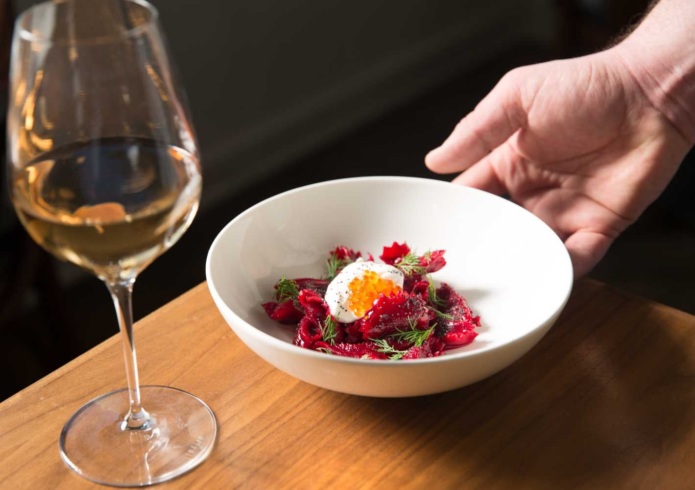
This ethos for approachability means guests can pop in for a bowl of pasta, or buckle down for an eight-course, family-style tasting menu. “It’s a very neighborhood-centric restaurant,” Frillman states. The hope is that diners will come in and try as many pastas as they possibly can. On an average Friday night, Daisies sells about 225 pastas. Assuming that the front-of-house turns each seat three times, that means most diners are having more than one pasta to themselves. You won’t see Bolognese on the menu, but you will see fried mushrooms with cheese curds and beet-filled agnolotti with creme fraiche, caviar, and dill—two dishes that honor the influence of German, Russian, and Polish immigrants and are part of the Midwestern cuisine that Frillman and his family grew up eating.
In place of the tasting menu, and for one week only, regulars and newcomers can delight in something entirely different. For Resy’s Off Menu Week, Frillman will be cooking traditional Italian cuisine, reviving a set of roots that he abandoned. Guests that book a table from October 21st to October 28th will be greeted with red-and-white checkered tablecloths and bread service, followed by porchetta di testa served with tuna sauce (Frillman’s Midwestern, pork-instead take on vitello tonnato), spaghetti cacio e pepe, meatball salad, and more. The whole table must participate in this nostalgic treat; it will be served family-style, of course.
“First and foremost, I miss eating [traditional Italian food],” Frillman says when asked about the inspiration for his Off Menu Week offering. With two young kids, he doesn’t get out to eat much, but when he does, he seeks out chef Sarah Grueneberg’s masterful pastas at Monteverde or heads down to Little Italy to dine at Bruna’s Ristorante, where bucatini all’amatriciana and carbonara have been served for almost 90 years. He cites Piccolo Sogno and Riccardo Trattoria as two other favorites. A secondary (and more selfless) appeal of dishing red sauce hits is that Frillman is able to offer his guests something they might have already been expecting. “Our clientele has no clue sometimes what they’re walking into: they just hear it’s a pasta restaurant and they have a preconceived notion of what they’re coming in to eat,” he explains. While Frillman delights in surprising diners with his distinct brand of vegetable-forward, Midwest-inspired cuisine, there’s something to be said for surrendering to expectations, if only for a limited time. It’s all in the name of fun.

